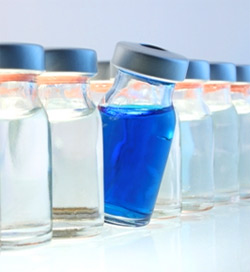 Unituxin (dinutuximab) has been approved by the U.S. Food and Drug Administration to treat children with high-risk neuroblastoma, a rare cancer that most often affects children aged five and under.
Unituxin (dinutuximab) has been approved by the U.S. Food and Drug Administration to treat children with high-risk neuroblastoma, a rare cancer that most often affects children aged five and under.
Children with the cancer, which forms from immature nerve cells, have only a 40 percent to 50 percent chance of survival despite aggressive treatment, the FDA said Tuesday in a news release. It occurs in about one of every 100,000 children, slightly more often in boys. Some 650 cases are diagnosed annually in the United States.
Unituxin has been sanctioned for use in combination with surgery, chemotherapy and radiation, the FDA said. The disease commonly begins in the adrenal glands, but also may start in the abdomen, chest or nerve tissue near the spine.
The drug’s safety and effectiveness were evaluated in clinical studies involving more than 225 children with neuroblastoma. Three years after treatment began with a regimen that included Unituxin, 63 percent of participants were free of tumor growth or recurrence, compared to 46 percent who received a similar regimen that included the anti-cancer drug isotretinoin.
Unituxin’s label includes a boxed warning of irritated nerve cells, which could cause severe pain and nerve damage. The drug also may cause serious reactions including upper airway swelling, difficulty breathing and low blood pressure.
The drug’s most common side effects included severe pain, fever, low blood platelets, allergic-like reactions, low blood pressure and low levels of salt in the blood.
Unituxin is marketed by United Therapeutics, based in Silver Spring, Md.
http://www.babycenter.com/